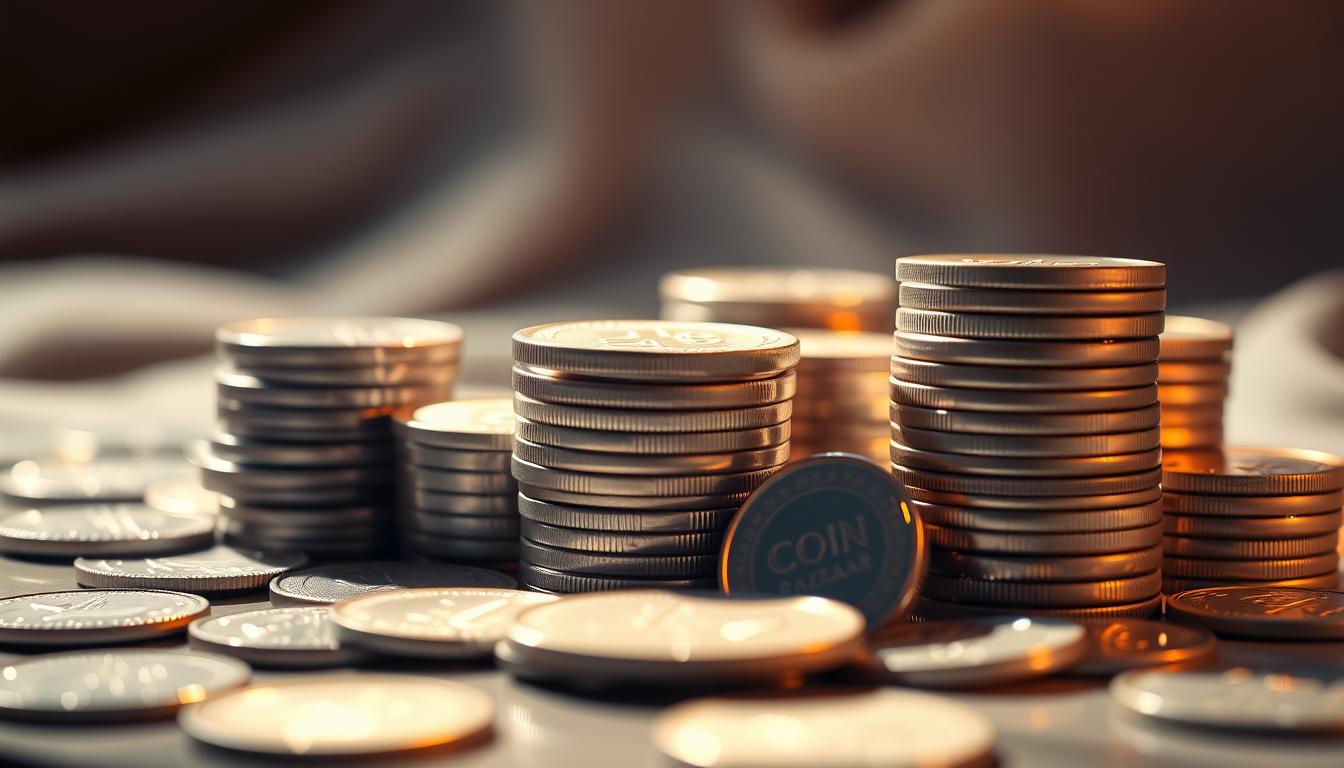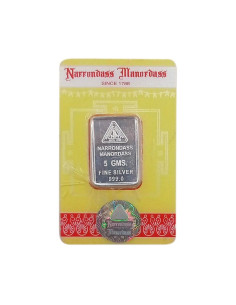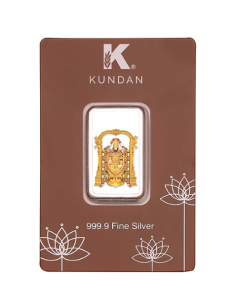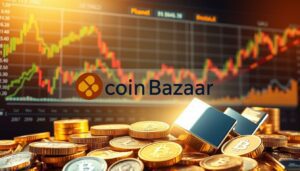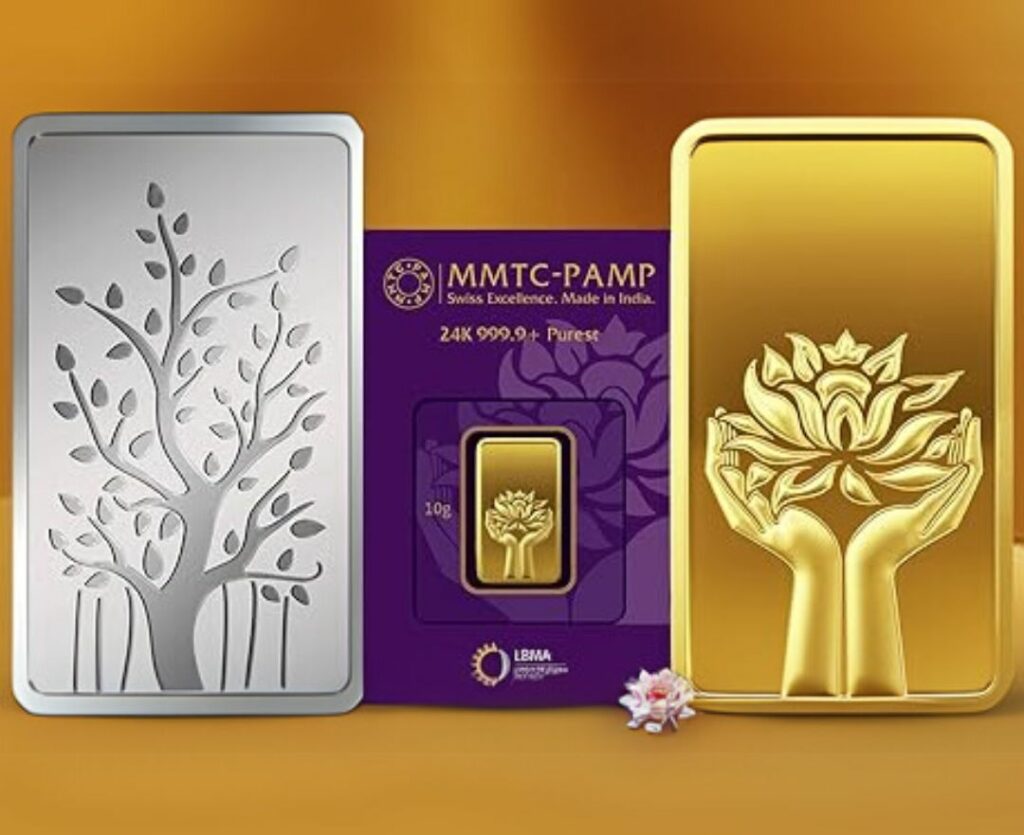Exclusive Deals & Trending Items


Tribhovandas Bhimji Zaveri & Sons Ganesh Color Silver Coin of 10 Grams in 999 Purity Fineness
Shop NowLooking to build a strong financial future? Consider options beyond stocks and bonds. Silver investments are a cost-effective way to grow your wealth. You can buy more silver than gold, making it a smart choice.
Silver protects against inflation and currency loss. It also meets growing demand in tech, solar energy, and healthcare. This makes it a solid addition to your portfolio.
Silver is 19 times more available than gold, with a global supply of 61 billion ounces. Its use in electronics and renewable energy boosts demand. This balances your portfolio with an asset that moves differently from stocks and bonds.
In India, silver is special. It serves as both an industrial material and a tangible store of value. This makes it a unique tool for diversifying your investments.
Key Takeaways
- Silver’s low cost makes it a gateway to precious metals investing for small investors.
- Historically, it gains value during inflation, protecting savings from currency declines.
- Industrial demand in tech and energy drives long-term growth potential.
- Its price movements often differ from stocks and bonds, reducing risk exposure.
- Physical silver like coins or bars provides a tangible hedge against economic uncertainty.
The Enduring Value of Silver as an Investment Asset
Silver investments are strong through all economic times. Over the last decade, silver gave a 767% return, close to gold’s 790%. Even in 2023, when gold went up 14.9%, silver rose 7.23% despite market ups and downs.
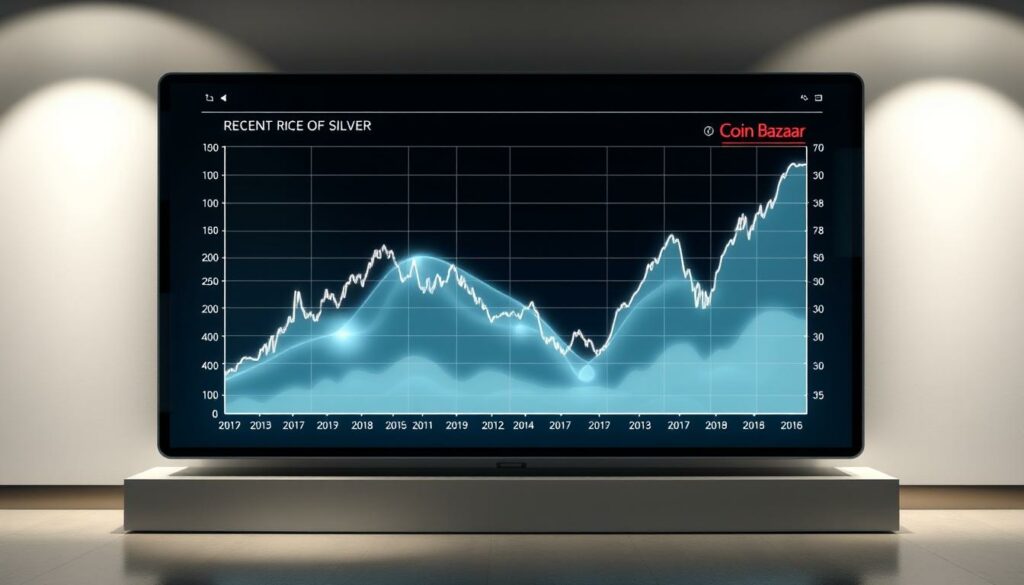

- Silver’s volatility (19.9% standard deviation over 5 years) makes its growth potential higher during upswings.
- Its 87:1 ratio to gold historically averages 70:1, showing it’s often undervalued.
Silver’s value comes from two main sources: industrial demand and its safe-haven status. Solar panel production alone increased silver use by 158% from 2019-2023. When tech booms, silver prices go up. In recessions, its safe-haven role is key—global investment demand rose 16% in 2024 as investors sought stability.
- Accessibility is key: silver’s lower price than gold makes it easier to start investing in precious metals.
- Its $75 billion market size versus gold’s $3.6 trillion means smaller demand changes can cause bigger price swings.
For Indian investors, silver is both a growth driver and a risk shield. Its role in green tech and jewelry traditions makes it culturally and economically valuable for your portfolio.
Understanding the Fundamentals of Silver Investments
Silver is valuable as both a commodity and an investment. Before you learn how to invest in silver, understand its basics. Note its silver bullion supply and demand imbalance. In 2023, global production was 25,800 tons, but demand keeps growing, especially in tech and renewable energy.
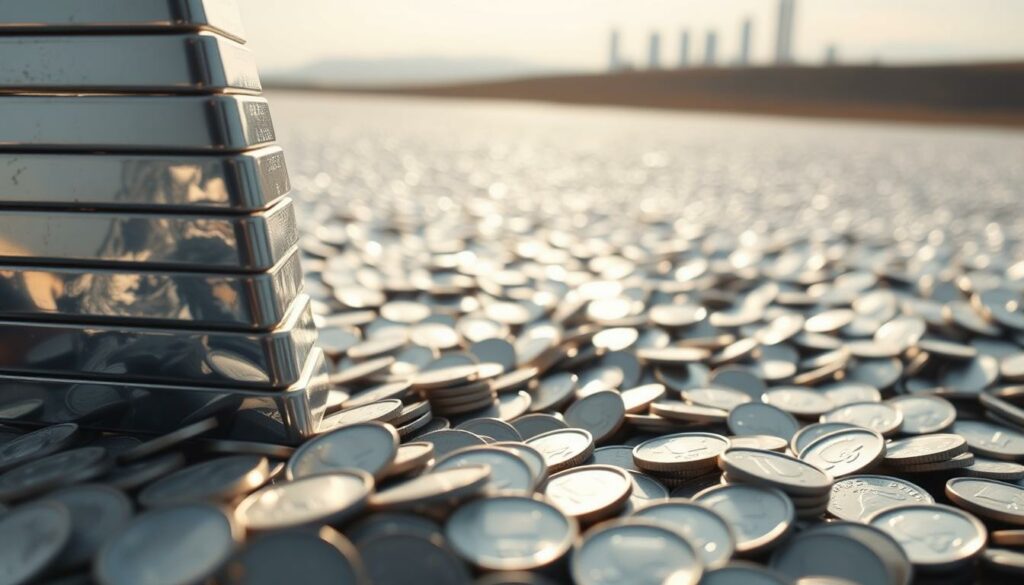

- Supply and Demand: Silver’s 2024 deficit (1.02B oz supply vs. 1.20B oz demand) shows its scarcity.
- Industrial Use: Its use in electronics, solar panels, and medical tech keeps demand steady.
- Market Factors: Prices change with inflation, US dollar trends, and global events.
Investors can pick physical silver bullion (coins/bars), ETFs, or mining stocks. Physical forms give you real ownership. But, remember: silver bullion buys aren’t FCA regulated, so check sellers well. Prices can swing a lot—2023’s average was $23.40/oz, but by late 2024, it hit $32.16, showing big price changes.
“Silver’s unique blend of industrial and monetary uses makes it a critical hedge against economic shifts.”
Begin by researching how to invest in silver through safe platforms. Keep an eye on global trends and think about your investment goals. Knowing its uses and market trends will help you make smart choices.
Why Portfolio Diversification with Precious Metals Matters
Creating a solid financial future is more than just seeking high returns. Adding precious metals investing to your mix keeps your portfolio strong when times get tough. Silver investments bring special benefits that protect your wealth from sudden drops.
Hedging Against Market Volatility with Silver
Silver’s price doesn’t always follow stocks and bonds. When the stock market falls, silver might go up, lowering your risk. Its 0.47 correlation with the Nifty means it often moves in the opposite direction.
In 2020, silver prices soared 47%, helping balance out stock losses. This opposite trend helps keep your investments stable during market downturns.
- Low equity correlation (0.47 vs Nifty’s 1.00)
- 3-year outperformance over Nifty in 60% of periods
Protection Against Currency Devaluation
Over five years, silver has grown 275% while the rupee lost 31.3% of its value to inflation. This makes silver a strong defense against currency decline. A 2023 study showed it helps keep wealth safe during inflation.
“Silver’s ability to preserve purchasing power during currency devaluation makes it a cornerstone of resilient portfolios,” noted researchers analyzing global inflation trends.
Creating Balance in Your Investment Strategy
Begin with 5-10% silver in your portfolio. Mixing it with stocks and bonds can reduce risk without sacrificing growth. A study showed a 32% gold/68% Nifty mix boosted returns while cutting volatility.
Silver’s use in electronics and solar tech adds to its growth potential, alongside its role as a safe haven.
Silver Investments: Options for Indian Investors
India has a high demand for silver, with over 1,675 million ounces held by investors. For those looking into silver investments, it’s important to know the local rules. The market offers many choices, from physical bars to digital ETFs, each with its own benefits.
Regulatory Framework for Precious Metals in India
SEBI and RBI set rules for how to invest in silver. They ensure purity and trading standards are met. Physical silver must be 99.9% pure, verified by hallmarking authorities.
Vedanta’s Rajpura Dariba Mine in Rajasthan is a big supplier. It helps ensure silver is available locally.
| Investment Type | Description | Pros | Cons |
|---|---|---|---|
| Physical Silver | Bullion, coins, or jewelry | Storage flexibility | Storage costs |
| Silver ETFs | Traded on NSE/BSE | No physical storage | Market volatility |
| E-Silver | Dematerialized units on MCX/NSE | High liquidity | Requires demat account |
| Futures | Derivatives contracts | Profit from price swings | High risk |
Tax Implications for Silver Investments
Long-term gains on silver ETFs get a 20% tax after three years. Physical silver is taxed at 30% for short-term gains and 20% for long-term. Always talk to a tax advisor before deciding between silver investments like ETFs or physical bars.
Physical Silver: Coins, Bars, and Bullion
Physical silver lets you own silver coins, silver bars, or silver bullion directly. This means you have full control over your investment. But, there are things to think about before you buy.
Make sure the silver is 99.9% pure. Look for reputable dealers like India Bullion & Jewellers or MMTC-PAMP. They ensure the silver is real.
| Type | Pros | Cons |
|---|---|---|
| Silver Coins | Collectible value; easy to store | Higher premiums |
| Silver Bars | Lower premiums; VAT-free for wholesale bars | Require secure storage |
| Silver Bullion | Recognized globally; liquid market | Potential storage costs |
Where you store your silver is important. Use bank deposit boxes or home safes. For extra security, consider vaults like SBI Bullion Storage.
Always check for certifications and buy from licensed sellers. This way, you avoid fake products. Also, remember that silver bullion doesn’t have VAT when bought in bulk. This can save you money over time.
- Check for ISO certifications on all purchases.
- Compare spot prices with dealer premiums before buying.
- Store in dry, temperature-controlled environments to prevent tarnishing.
Investing in physical silver adds a tangible asset to your portfolio. Think about the benefits of owning it and the storage needs. Choose the right form for your investment goals.
Digital and Paper Silver: ETFs, Stocks, and Futures
Explore silver investments through digital tools that mirror silver prices without physical ownership. ETFs, mining stocks, and futures offer varied ways to participate in this precious metal’s market trends.
| Investment Type | 5yr Returns | 10yr | 20yr | Risk Level | Fees | Tax Notes |
|---|---|---|---|---|---|---|
| Silver ETFs | 10-15% | 15-20% | 10-15% | Moderate | Up to 1% | LTCG tax 20% after 3yrs |
| Minning Stocks | 10-15% | 8-12% | 7-10% | High | Varies | Company-specific risks |
| Silver Futures | 10-15% | 15-20% | 10-15% | High | 0.05% brokerage | LTCG 20% after 36 months |
Silver Exchange Traded Funds (ETFs) Available in India
Top choices like ICICI Prudential Silver ETF and Nippon India Silver ETF track global silver prices closely. These ETFs charge up to 1% annually and qualify for long-term capital gains tax at 20% after 3 years. Like precious metals IRAs in other markets, Indian ETFs provide liquidity without storage concerns. Investors can buy units directly through stock exchanges.
Mining Company Stocks as an Indirect Investment
Stocks in companies like Hindustan Zinc—producing 750 tonnes annually—offer exposure to silver prices through mining operations. Their returns correlate with industrial demand trends, but company performance adds extra risk. Over 60% of global silver demand comes from electronics and solar panels, driving price volatility.
Silver Futures and Options for Advanced Investors
Futures contracts on exchanges like MCX let you speculate price swings with margins. These require active monitoring and are best for experienced traders. Short-term gains face slab taxes, while long-term holds over 36 months qualify for 20% LTCG rates.
Current Silver Market Trends and Price Analysis
Knowing about silver market trends is key to smart investing. Lately, silver prices have gone up because of industrial growth and world economic changes. Let’s look at what’s behind these trends:
Factors Influencing Silver Prices in Global Markets
Three main things affect silver prices:
- Monetary Policy: Low interest rates make people want more silver.
- Technology Demands: Silver is needed for EVs and solar panels, making up 19% of demand.
- Geopolitical Tensions: When markets are unsure, silver becomes a safe choice.
Supply and Demand Dynamics Affecting Silver Values
There’s a big gap between how much silver is made and how much is needed. Here’s what’s expected:
| Year | Supply (Billion Oz) | Demand (Billion Oz) | Deficit |
|---|---|---|---|
| 2024 | 1.02 | 1.20 | 0.18 |
| 2025 | 1.05 | 1.20 | 0.15 |
In 2025, a deficit of 149 million ounces is forecasted, marking the fifth year in a row. Mexico, which produces 20% of the world’s silver, is facing mining challenges. At the same time, demand from EVs and solar technology is high, putting more pressure on supplies.
Experts think silver prices could rise by 12% in 2025 because of growth in the tech sector.
Invest in quality assets and keep an eye on these silver market trends. Be aware of changes in mining and global trade policies to make the best investment timing.
Starting Your Silver Investment Journey: A Practical Guide
Ready to how to invest in silver? First, figure out your goals. Are you looking for quick profits or long-term growth? Silver investments can fit your needs, whether you prefer physical bars, ETFs, or digital platforms.
- Choose Your Entry Point: Begin with a small amount. Platforms like DigiGold let you start with just ₹1. They offer 24/7 access so you can check your investments anytime.
- Open Required Accounts: For ETFs, you’ll need a Demat and trading account with a registered broker. If you’re into futures, you’ll need an MCX-linked account to buy or sell contracts.
- Prioritize Purity and Security: Look for 999.0 purity silver stored in BRINS vaults. If you prefer physical, make sure the hallmarks are from BIS India.
“Start with a small allocation—5-10% of your portfolio—to test the waters,” advise experts. “Dollar-cost averaging reduces timing risks.”
Investing in physical silver coins or digital units on platforms like DigiGold gives you real ownership. ETFs, like UTI’s Gold BeES (which includes silver holdings), make diversifying easier. Always compare costs: physical purchases have storage fees, while ETFs have management fees.
Keep an eye on global trends—industrial demand or inflation rates—to time your investments. Use the how to invest in silver checklist: check dealer licenses, purity certificates, and pricing. Always know how to exit your investment.
Remember, Silver’s value changes with economic and market shifts. Stay updated, start small, and let silver’s versatility boost your portfolio.
Common Pitfalls to Avoid When Investing in Silver
Investing in silver can be rewarding, but mistakes can hurt your gains. Here are tips to avoid risks and keep your wealth safe.
Authentication and Purity Concerns
Counterfeit silver is a big risk. Buy from trusted dealers like India’s National Silver Association or PAMP Suisse. Use acid tests or XRF scanners to check silver coins or bars.
Look for hallmarks from BIS or ISO-certified mints. For example, the Royal Mint Lunar series has clear marks of authenticity.
Storage and Security Considerations
- Home storage risks theft or damage; consider bank lockers like SBI’s Safe Deposit Lockers.
- Store silver bars in dry environments to prevent tarnishing.
- Insurance policies must cover your silver coins’ current market value, not just purchase price.
Professional vaults like Swiss Asia Bullion offer insured storage but charge fees. Think about the cost versus the security you need.
Timing the Market vs. Dollar-Cost Averaging
Trying to time silver’s price changes often fails. Instead, use dollar-cost averaging: invest fixed amounts monthly. For example, buying ₹5,000 worth of silver coins every month can reduce risk.
Historical data shows silver prices surged 400% after 2008. But timing the peak is hard for most.
Stick to a plan. Financial advisors suggest keeping silver investments under 5% of your portfolio to avoid overexposure.
Silver Investments During Economic Uncertainty
When markets get shaky, silver often stands out as a solid choice. It acts as a safe haven and an industrial metal, making it a strong defense against economic downturns. Let’s look at how silver prices behave during tough times and how to invest wisely.
- Safe Haven Demand: In crises like the 2008 crash or the 2020 pandemic, silver prices jumped 140% and 68% respectively. This outpaced stocks.
- Industrial Backing: 65% of global demand comes from tech and green energy. This keeps silver market trends steady, thanks to real-world uses.
- Volatility as Opportunity: Silver’s 29% annual volatility means it can offer big gains with the right strategy.
“Silver’s dual nature makes it the ‘Swiss Army knife’ of portfolios—it protects and grows when other assets falter.” – S&P Global Commodity Insights
| Asset | 2024 Return |
|---|---|
| Silver | 22.5% |
| Nifty 50 | 2.2% |
- Use MCX futures for liquidity and leverage
- Pair ETFs like UTI Nifty Silver BeES with physical holdings
- Monitor central bank policies—Russia’s silver reserve additions signal growing institutional confidence
Now, silver prices are 9% below their highs. But the World Silver Survey 2024 predicts a 17% gain by year-end. To balance risk and reward, use silver to counter equity losses without overinvesting. Keep an eye on global supply and demand changes to make smart investment moves.
Building a Silver Strategy Based on Your Financial Goals
Every investor’s journey with silver begins with setting goals. Whether you seek quick profits or long-term wealth, silver investments can match your plans. Silver’s versatility, as both an industrial and precious metal, makes it suitable for various strategies.
Short-Term vs. Long-Term Approaches
For quick gains, watch price changes. Follow market trends related to tech or economic news. How to invest in silver for fast returns? Use ETFs or futures for their flexibility. For long-term growth, consider physical bars or coins. Their value increases with the growing demand in electronics and solar energy.
Balancing Silver with Other Investments
Mix silver investments with stocks, bonds, or real estate. Start with 5-10% of your portfolio. If you’re cautious, start with a smaller portion. If you’re bold, you might allocate more. To spread risk, combine physical silver with ETFs.
- Short-term: Track price volatility with ETFs
- Long-term: Buy physical silver for steady growth
- Balance with 5-10% in silver for stability
Think about your risk comfort level. Silver’s role in both recession protection and tech growth is unique. Pair it with stocks for income and bonds for stability. Start small—₹500 monthly via digital platforms—to build a habit without big upfront costs.
Remember: No two strategies are the same. Tailor your approach to your goals. Whether you aim for safety or growth, how to invest in silver should match your unique needs.
Cultural Significance of Silver in India and Its Impact on Investment
India’s love for silver deeply influences silver investments. Silver is a key part of weddings and festivals, seen as a symbol of purity and wealth. Over 1,675 million ounces of silver are kept by Indians, showing its value as both a cultural treasure and a financial asset.
While 3% of global silver is used for jewelry, the other 97% powers industries. This creates unique investment chances. During festivals like Diwali or weddings, demand for silver coins and silver bars goes up, affecting prices. This pattern can help you decide when to buy or hold.
- Tradition meets opportunity: Families often give silver coins or bars during festivals, mixing cultural practices with wealth-building.
- Modern access: Sites like GGC make buying silver coins and bars online easy, combining tradition with convenience.
- Generational shifts: Younger investors see silver as a way to protect against inflation, besides its role in rituals.
Silver is more affordable than gold, making it easier for small investors to get into. Its role as a cultural icon and industrial material keeps its value stable, even when the economy changes. Whether for weddings or as part of a diversified portfolio, knowing about silver’s cultural importance can improve your investment strategy.
As traditions change, so do investment chances. Silver’s lasting place in Indian life makes it crucial for managing wealth. By linking your silver investments with cultural events and trends, you can boost returns while respecting long-standing customs.
Conclusion: Securing Your Financial Future with Strategic Silver Investments
Silver investments offer a mix of safety and growth. It’s a key player in the precious metals market, valued for both industrial use and as a safe asset. Its demand stays strong, whether in tech or solar panels, and it protects wealth during tough times.
Over the last ten years, silver has shown growth similar to gold. But, its lower price makes it easier for more people to invest. This makes it a great choice for those looking to grow their wealth.
In India, picking the right time to invest in silver is crucial. You can choose from ETFs, coins, or mining stocks to fit your goals. Even starting with just ₹100 per gram can help diversify your portfolio.
Keeping an eye on global trends helps you spot chances to boost your returns. This way, you can make the most of your silver investments.
Silver’s affordability and versatility make it a smart choice against inflation and market ups and downs. Adding it to your investment strategy can help you build a strong financial future. Its cultural importance in India also adds to its appeal as a reliable asset. Start exploring how silver can secure your financial future today.






